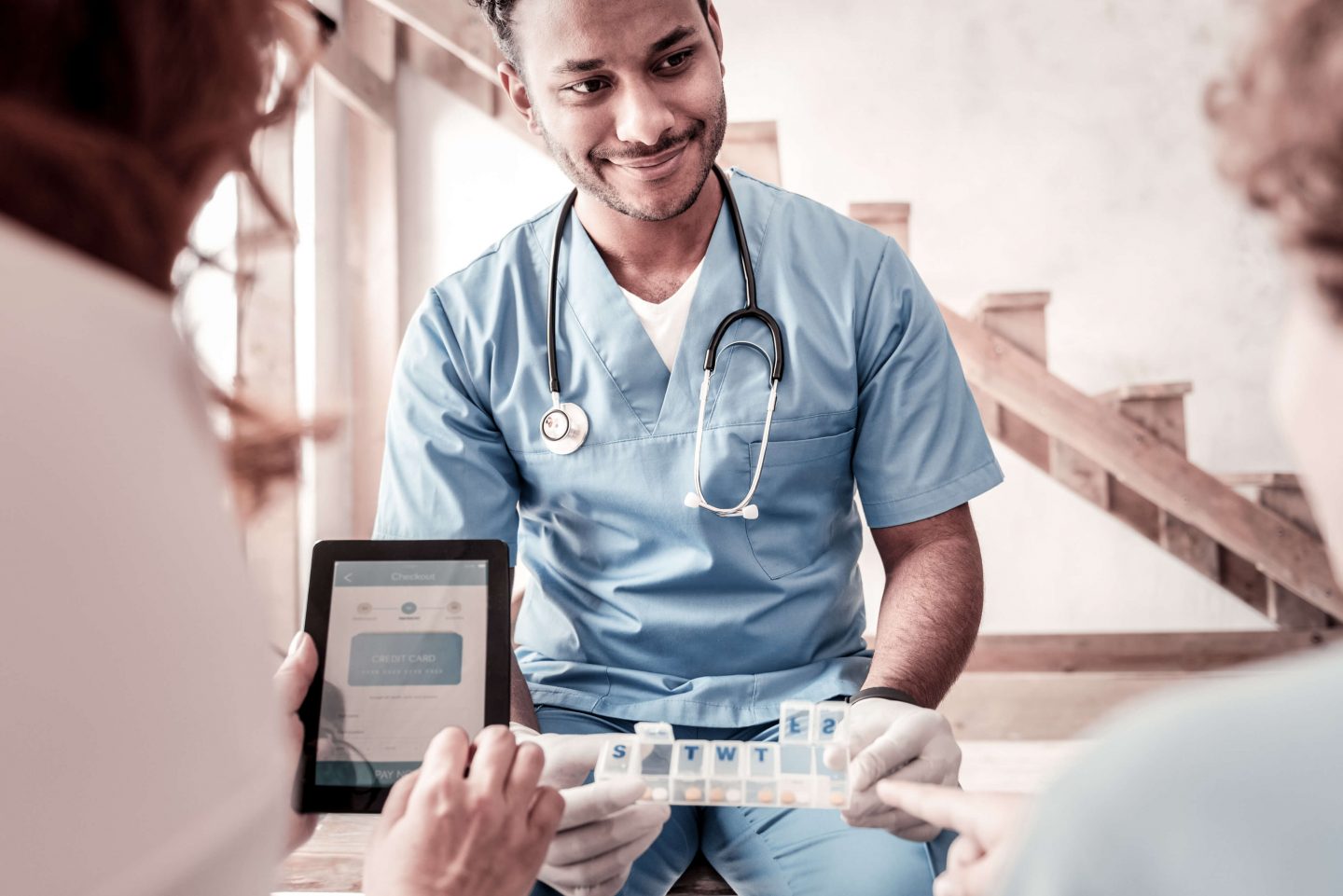And how the recently adopted law promotes Germany as the top destination for the international digital health startups.
The latest news about the Germany’s Digital Healthcare Act (DVG) allowing the reimbursement of digital health solutions by statutory insurance funds is all over the media space. Since the adoption of the law in the late 2019 we have been discussing its implications for all the actors of the healthcare systems, especially for the patients and startups.
Now, in September 2020, we are already expecting the first cohort of Digital Health startups (15 of them and more to come) to get approved for operations under the Act in Germany.
We’ve decided to learn about the objectives and aspirations of the startups. In order to provide a comprehensive insight on the DVG implementation, we talked to three startups from different areas (digital therapeutics for chronic diseases, connected devices and mental health) and different countries (two local ones from Germany and an international startup from Estonia).
Diabetes patients in Germany will be reimbursed for digital care
MySugr, a German digital health company that simplifies life with diabetes, is among the pilot startups. The application, together with integrated medical devices for blood sugar control, allows people with diabetes to have a comprehensive home-delivered and easy-to-use treatment.
Since 2007, MySugr has become a part of Roche but is still maintained as an independent platform.
Sarah-Maria Richter, Global Communications Manager of MySugr, commented on the startup’s “Fast Track” experience:
The German Ministry of Health tapped into a completely new field and brought an iterative process into place in a very short period of time. Our collaboration with their team was smooth, they regularly communicated via road show events and later video workshops to connect and mediate between different stakeholders.
MySugr team is looking forward to offering a PRO version of the application for publicly insured people with diabetes in Germany without additional costs. The startup is eager to support the diabetes patients in their daily therapy management as well as facilitate the collaboration between patients and their doctors.
A few areas for improvement on the way to the better healthcare
Of course, dealing with the pilot law cannot be perfect, so there are some details about the DVG that still need to be clarified. For example, payer associations need to explain the technical verification process and the duration of the prescription period during the during the activation. Also, the digital act is starting off with the reimbursement of medical products with a low risk class of the European Medical Device Regulation.
However, there are also many solutions (e.g. Bolus Calculator, the insulin calculator of MySugr) that are in higher medical risk classes and should be included in the upcoming iterations of the act in order to provide the best digital products to patients.
Talking about the perspectives of the Digital Healthcare Act, Sara-Maria comments that the implementation of the law will obviously help to enhance healthcare for patients and save time for caregivers who are monitoring their patients. In the end, it will lead to a more effective and efficient overall healthcare system in Germany.
Digital solutions for mental health are also in, although with some restrictions
Selfapy is a company digitalizing traditional cognitive neurotherapy approach.
The app provides digital therapy for mental health disorders like depression, anxiety and eating disorders combining digital and human components: a patient has also an opportunity to message and talk to a phycologist. The startup currently operates in Germany, Austria and Switzerland.
Farina Schurzfeld, Co-Founder & CMO at Selfapy, pointed out the peculiar thing about the mental health apps in relation to DVG. Turns out that the Act doesn’t allow to use the consultations with psychologist via the app which left Selfapy only with the digital support option.
Curiously, this option is phrased as a ‘risk reducing mechanism’ meaning the cases like preventing a suicide rather than a supportive therapy. In my experience, Selfapy’s blended approach works best for mental health so we hope to get this component back in the following iterations of the law – comments Farina.
Digital therapy vs call centers: who wins?
According to Farina, it’s also not very clear how the prescription process is going to work and this is probably the biggest issue at the moment.
The doctor gives you the prescription for the app and then you have to call your insurance company for the code to activate it. Imagine a call center of an insurance company forwarding you from one switchboard to another – that might be a risk to the whole process, especially in the beginning.
Although Selfapy has no doubts about the overall importance of the DVG and the need of such regulation.
We focus on GPs because 80% of diagnosis of psychological disorders come from GPs. And they need more than 6 min which is the average time a doctor has for a patient in Germany. Hence, the doctors are quite open to support the digitalization, according to the focus group interview we held. Of course, some are skeptical and it’s normal, but overall perception is very positive.
In addition, the business opportunities are clear. Selfapy gets access to 73 million insured people which is 4 time more than 18 million of current customers database of the startup. The revenues of the company are expected to grow at least 3 times or more.
Free immediate psychological help for everyone
Farina confirms that their aspiration has always been to become a part of the statutory system in Germany.
“Our goal is that every patient could get Selfapy for free and that’s what happening now. The implementation of the DVG is a huge milestone and of course promoting the digital side of the policies in healthcare as tough job. Clearly, if pilot works well in Germany it would be great to expand it to other EU countries.
The current issue here is that the healthcare systems of these countries are very different and cannot be easily aligned. It leads to huge barriers for a digital health startup to enter new markets even within the EU: any action is healthcare takes enormous time and effort.
For example, European-wide, Switzerland seems also quite appealing due to the adopted digitalization strategy for healthcare. But from general perspective, healthcare systems still remain highly bureaucratic areas with a lot of local pressure”.
Germany’s digital health potential
The story of Healthy Networks, an Estonian startup selecting the country for its expansion, is a good illustration of the German digital health market’s perception from the international perspective.
Healthy Networks is developing LungPass, the world’s first low-cost ML-based app and stethoscope for early detection of deadly lung conditions, both for home and professional use. The product received its first medical device registration in the home market in September and is expected to get the CE approval in upcoming months.
Helena Binetskaya, CEO and co-founder at Healthy Networks, shares how the startup was selecting a country to establish their new office.
“Germany wasn’t even nearly on our radars when we were exploring different opportunities. We analysed the EU5 markets together with our key partner in this process, a B2B healthcare marketplace Vamstar. We looked at the countries’ local trends in public contracts and related SMEs representation, at their focus on outcomes vs on price only criteria, at the readiness to fund innovative products and existing pathways to do so. Quite unexpectedly for us, Germany came out as a clear leader. That’s why we decided to start commercialisation specifically in Germany, also because of the public market size for connected devices and services, as well as said market accessibility.
We are looking closely into applying for the “Fast Track” under DVG. Nevertheless, at least three challenges of the Act are clearly present: getting the provisional reimbursement, competing for doctors’ time against all other companies pitching their products and trying to convince those are prescription-worthy, gathering substantial evidence of the product’s health economic benefit within a year.
Still, Germany is the only country in the world that dared to launch a digital health reimbursement scheme on such scale (recently CMS agreed to cover ‘breakthrough’ medical devices, so the US is catching up). DVG brings the following advantages: the availability of the money pool digital health products can tap into, a clearly articulated focus of government and payers on better care and outcomes, and the incentives for providers to implement those.”
In the next part of our investigation about the German Digital Health Act we are going to talk to policy makers. Follow us on social media for more updates!



